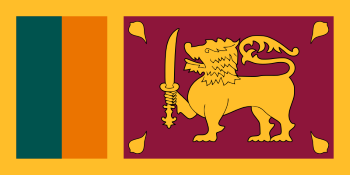When discretion is discretionary – the choices in Sri Lanka. – By Aubrey Joachim

 Pub patronage in the UK is on the decline. Fans at ice hockey and softball games in Canada are declining. Marks and Spencer the leading British high street brand is planning store closures going forward. Instead British drinkers are opting to stay at home and watch their sport on streaming services, so too are the Canadians. People are opting to stretch their wardrobes further rather than indulge in the latest fashion trends. As global inflation marches unabated people are cutting down on discretionary spend. Of course some habits die hard. Last night the Lyceum theatre in London was packed for its umpteenth performance of Lion King. At the end of the curtain-call the lead actor appealed to the audience to contribute generously to support starving children across the globe. Discretion certainly spans a broad spectrum.
Pub patronage in the UK is on the decline. Fans at ice hockey and softball games in Canada are declining. Marks and Spencer the leading British high street brand is planning store closures going forward. Instead British drinkers are opting to stay at home and watch their sport on streaming services, so too are the Canadians. People are opting to stretch their wardrobes further rather than indulge in the latest fashion trends. As global inflation marches unabated people are cutting down on discretionary spend. Of course some habits die hard. Last night the Lyceum theatre in London was packed for its umpteenth performance of Lion King. At the end of the curtain-call the lead actor appealed to the audience to contribute generously to support starving children across the globe. Discretion certainly spans a broad spectrum.
Discretion is a very discretionary word – as an adjective it means ‘available for use at the discretion of the user’. How very apt. In Sri Lanka over fifty percent of the population are choosing to skip a meal, parents are foregoing multiple meals to send their kids to school. Others have just given up on their life-extending medications just to put a morsel on the table. A woman at a chemist store sadly turns and leaves empty handed as the price of her cholesterol medication has increased – again. Forget about a tipple or a new garment. These are anecdotal facts. Discretion takes on a whole new meaning in a country that is buckling under economic failure and below par governance and administration.
A single mother unashamedly begs of her better positioned friend asking for a used schoolbag for her seven-year old son. The bag he has been using has been repaired so many times that “there is no place to put another stitch” she laments. And, by the way would her friend have an old dress to replace her own threadbare garment? School teachers are distraught each morning at the sight of kids dropping off to sleep or fainting in the class because they did not have breakfast – some not a morsel even the night before. This is beyond discretion! Teachers in schools have now set up ‘food-corners’ – where the better-offs bring in an extra meal pack to support the unfortunate. As per UN and World Bank agencies the number of mal-nourished children in Sri Lanka is worryingly on the increase. Meanwhile an academic debate rages if Sri Lanka is a low-income or middle-income nation. Statistically GDP divided by the population places it above a numerical threshold that classifies it as middle-income. Facts on the ground are different. Discretion in this case is driven by vanity.
On another front joblessness is surely steadily increasing. Large Sri Lankan conglomerates have either stopped recruiting or are reducing their work-forces. Some organisations are closing for good as they cannot operate any longer as a well-qualified young man is told that he will not have a job any longer. The UK’s Marks and Spencers pairing down of in-store clothing offerings is reflected in reduced demand from the large clothing manufacturers in the country. An influential HR manager in a large international organisation in Sri Lanka pleads of his friend to find a job for his recently qualified science graduate niece as his own company is cutting down staff. The signs are worrying.
For a world that is crawling out of a pandemic, global economic indicators are concerning. In addition, recent acts of God – hurricanes in North America, floods in Australia and severe droughts are causing havoc. SkyNews UK yesterday ran a program on the dire conditions in Somalia. A quarter of a million are expected to die – mostly children suffering malnutrition. Hopefully such a story will not be the case in Sri Lanka. Acts of man are also contributing to the turmoil with the escalating Russia-Ukraine war adding to the mix.
While most of the globe may be facing circumstances that have been beyond their control, this is not entirely true for Sri Lanka. Most of its predicament has been the result of ‘discretion’. Discretion in choices – of who its leaders are, policies, financial governance and the unsustainable lifestyle of its people. Sri Lanka has overcome most global turmoils in the past – world wars, recessions, the global financial crises etc. but has never reached the low point that it currently faces. How will the country tide over this crisis?
More than ever the right discretionary choices at this point made by the leaders and the masses is crucial to the future of Sri Lanka. Let’s hope the right choices are made.
Anecdotal evidence is first hand from on-ground sources in Sri Lanka.







